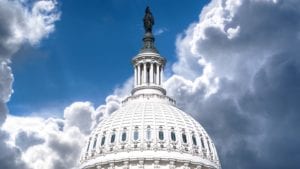Medicaid’s complex federal-state financing structure has long created perverse incentives that discourage efficient care. Key to the problem is the federal government’s uncapped reimbursement of state Medicaid expenditures, which encourages states to artificially inflate their Medicaid spending. Such schemes have significantly increased over the past several years and they likely add tens of billions in generally low-value Medicaid spending each year.
This study examines states’ use of accounting schemes to inflate federal Medicaid reimbursements. The study focuses on the largest of the current schemes, provider taxes. These are assessments states levy on healthcare providers, often accompanied by the explicit or implicit guarantee of increased Medicaid payments to those same providers, financed from the federal matching funds. The study provides an economic and political analysis of these taxes and other strategies that states have employed to maximize federal Medicaid reimbursements, and recommends reforms. It contains an appendix with a case study of Arizona, which shows how the state imposed provider taxes to pay for Medicaid expansion.









